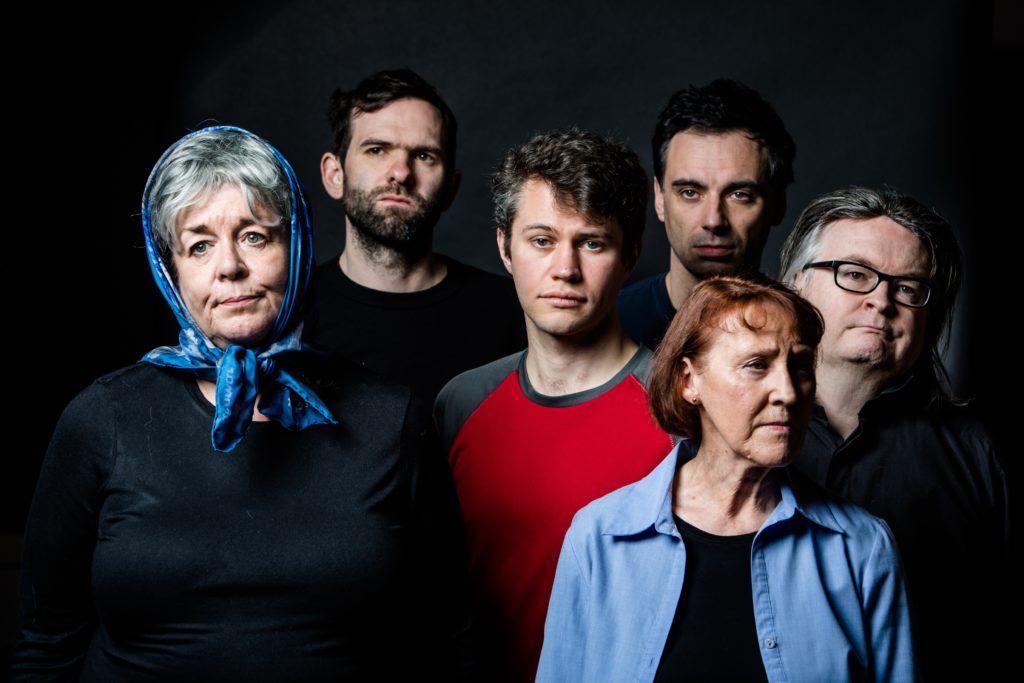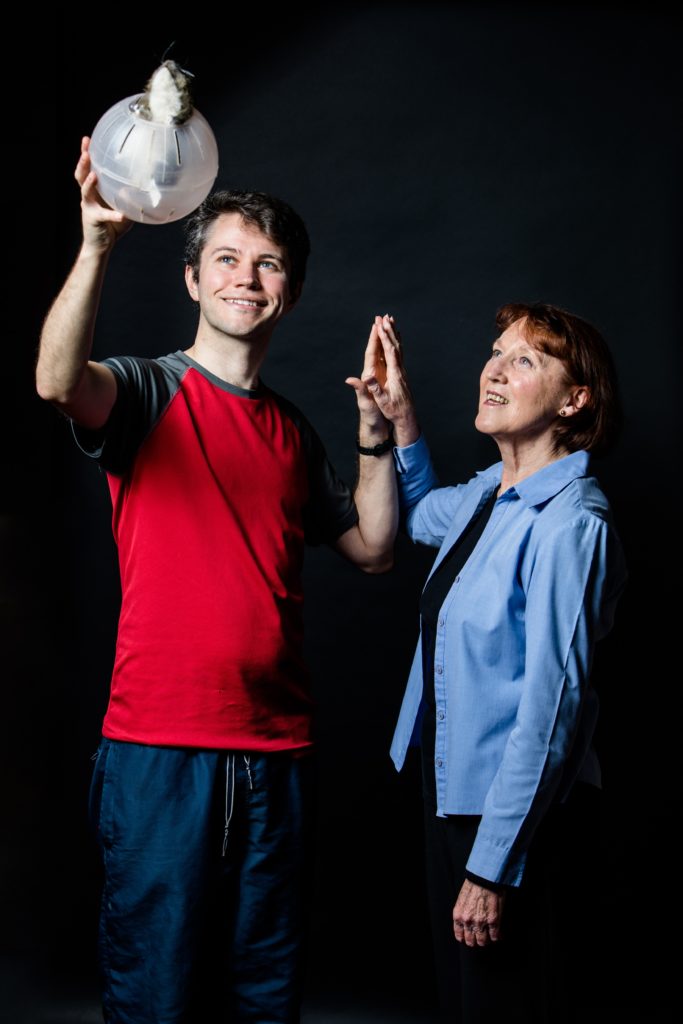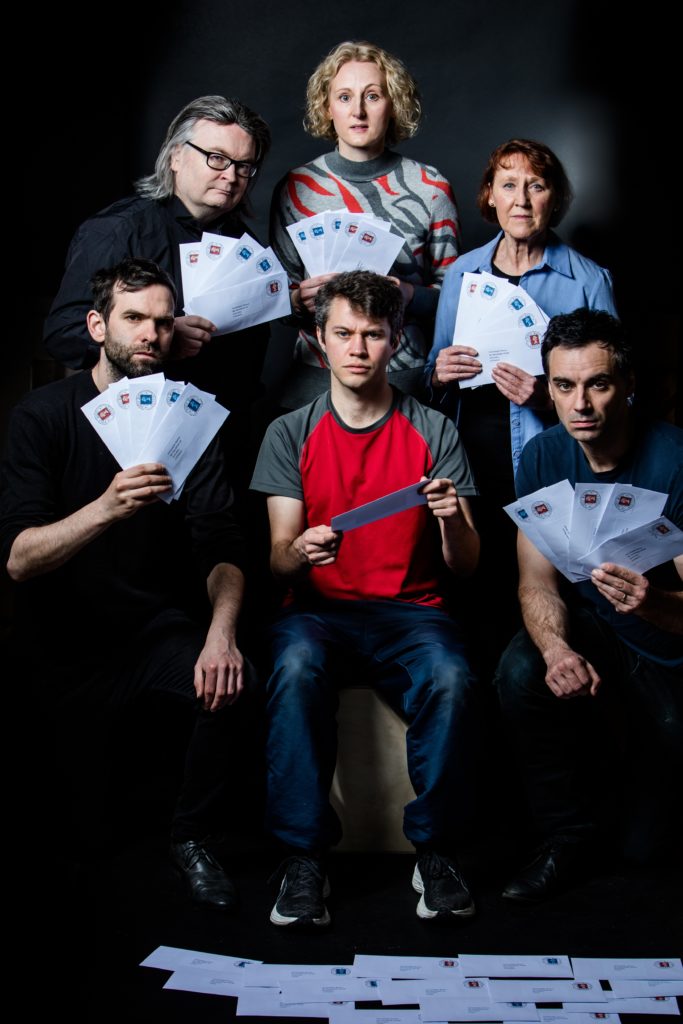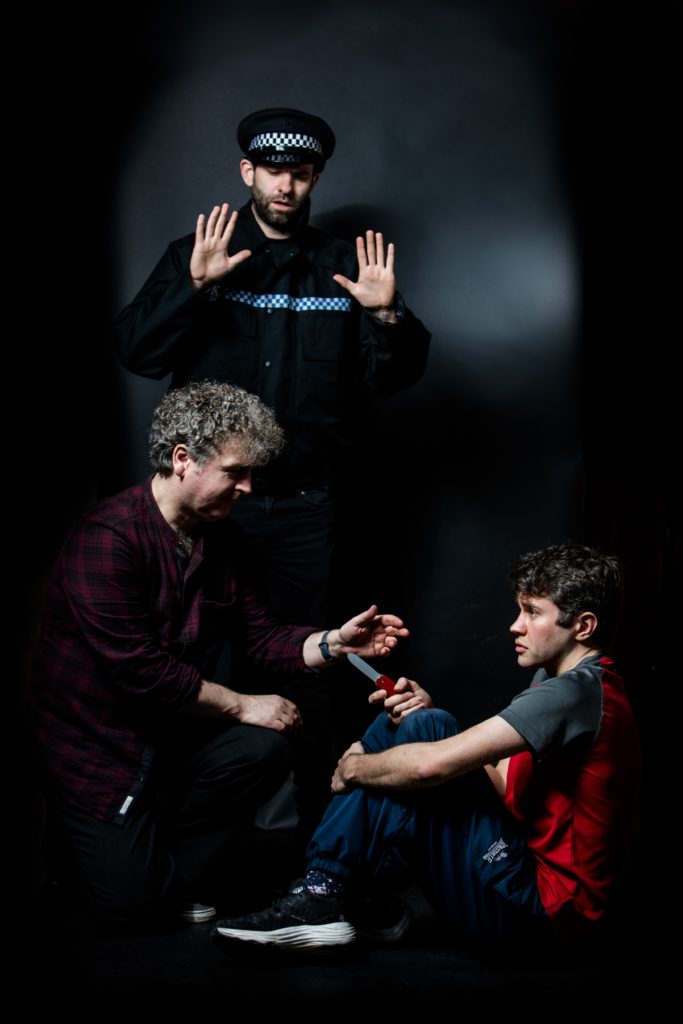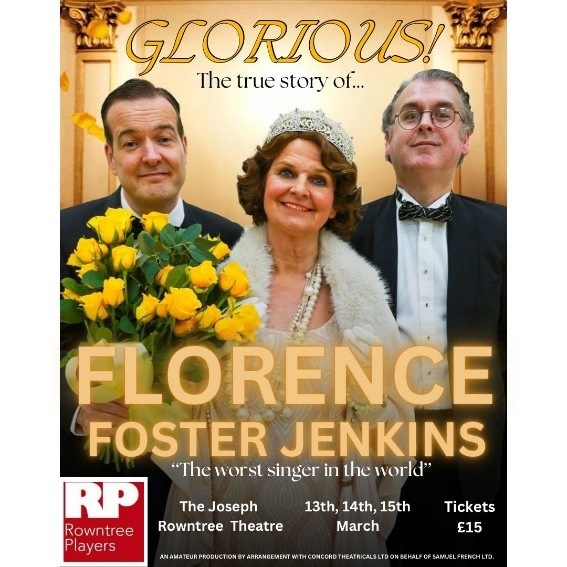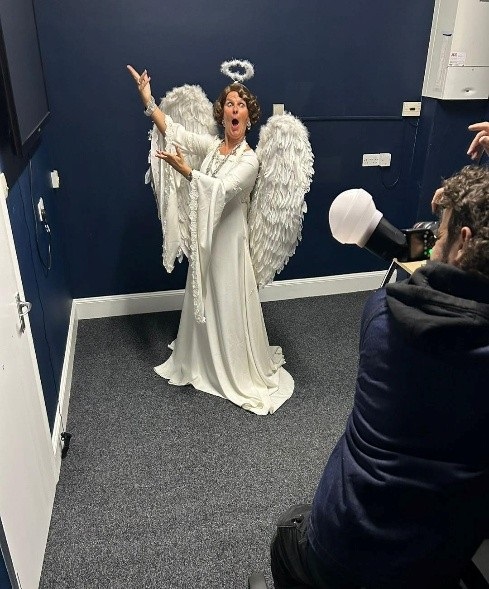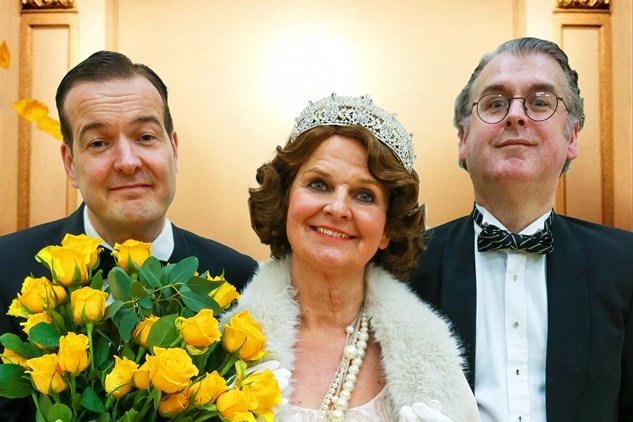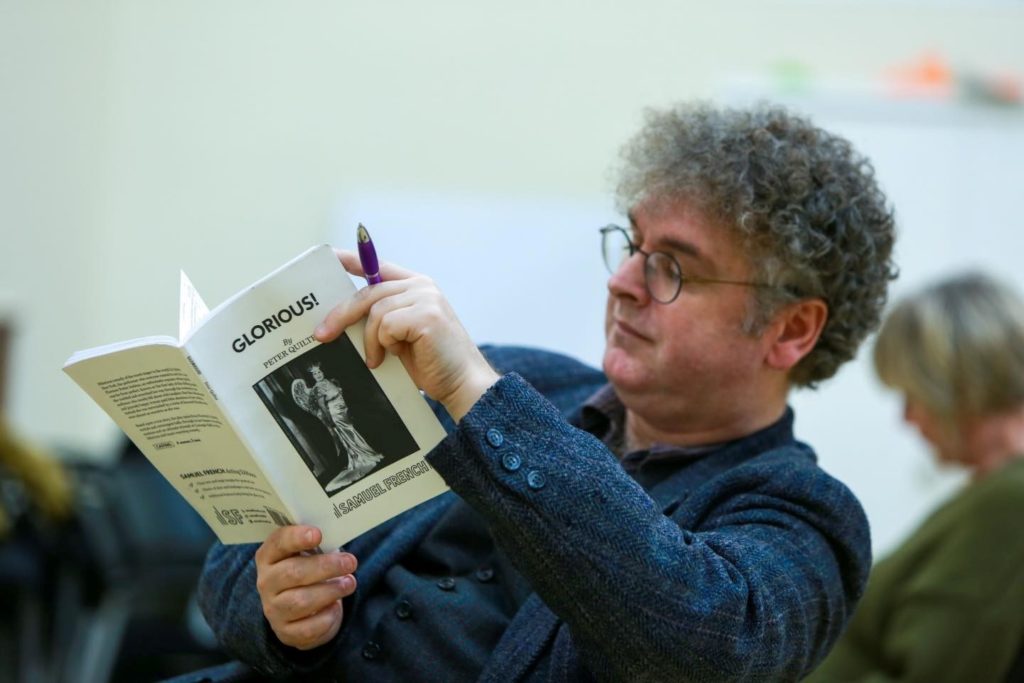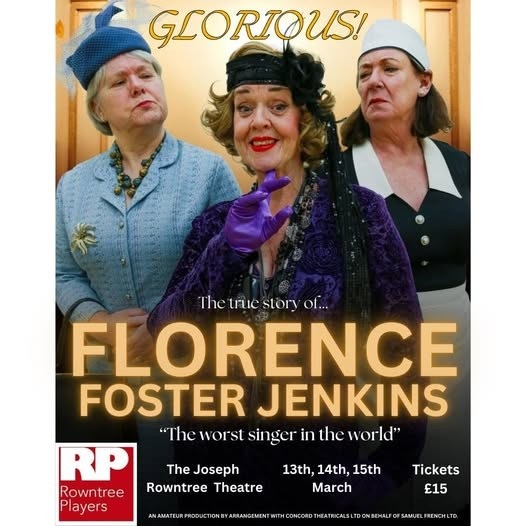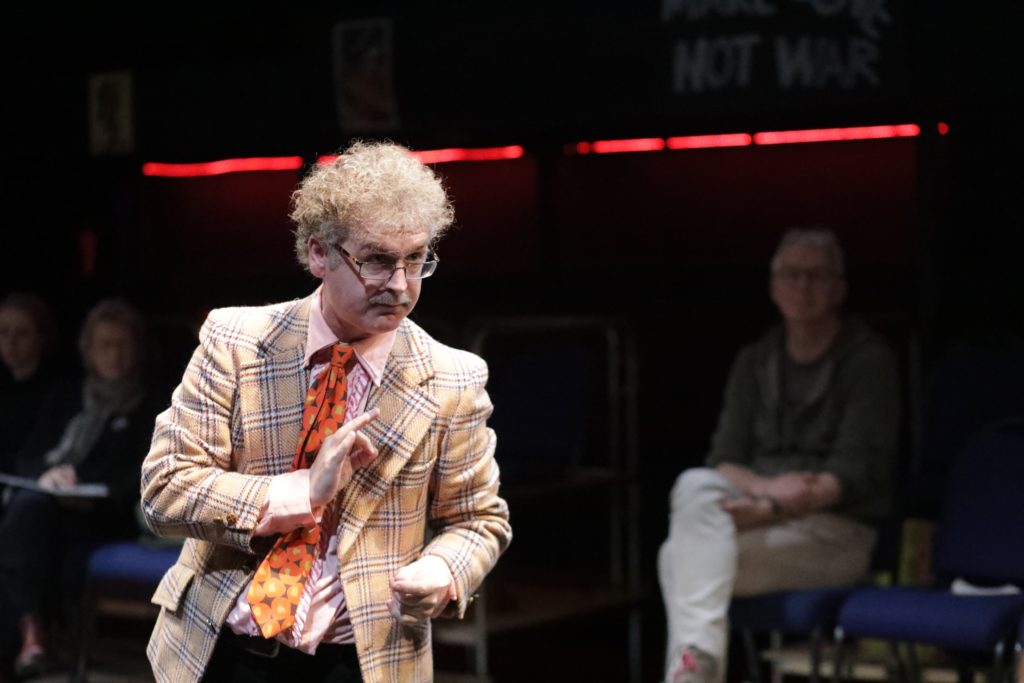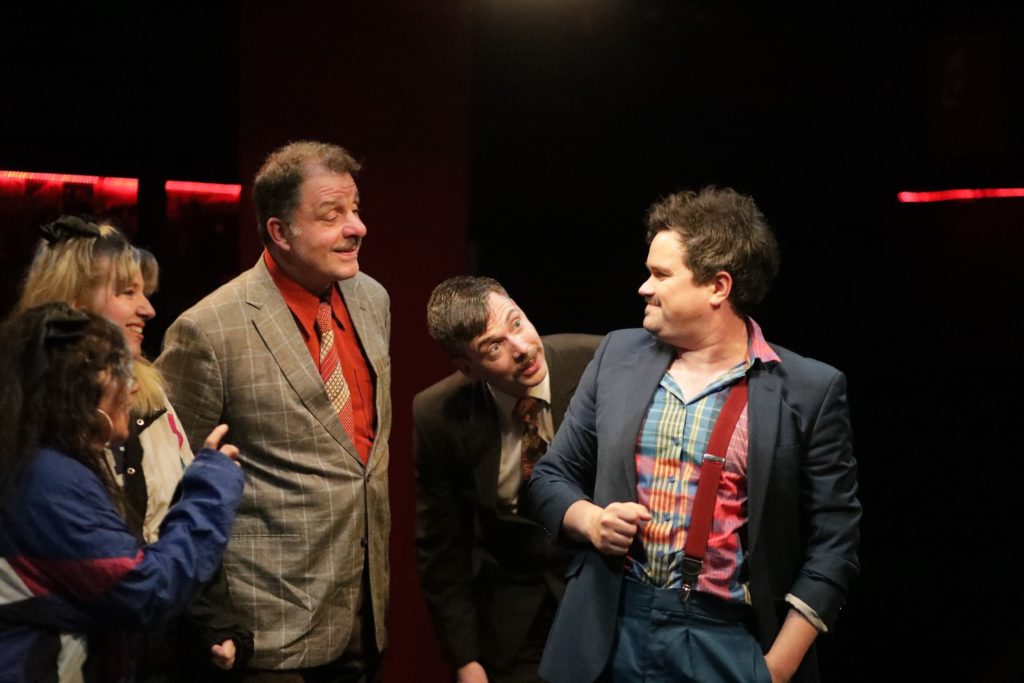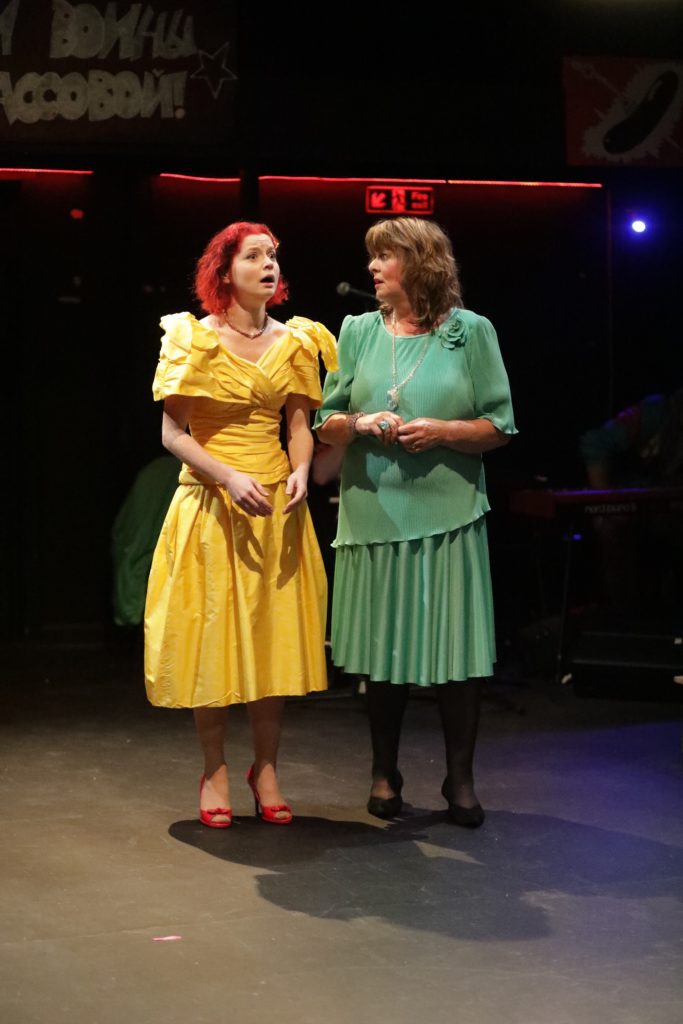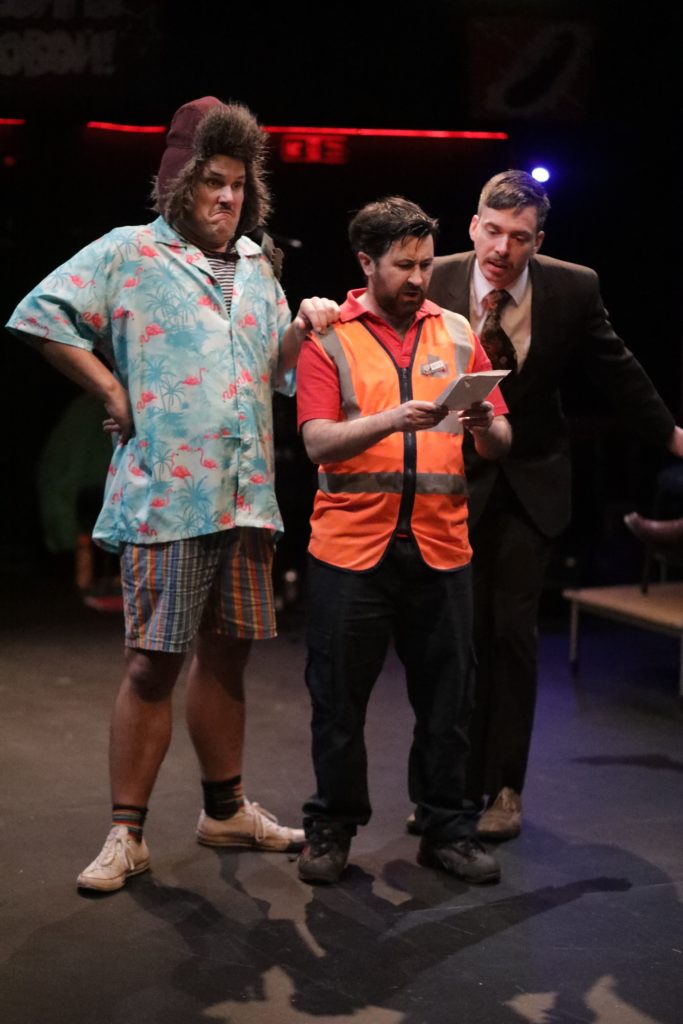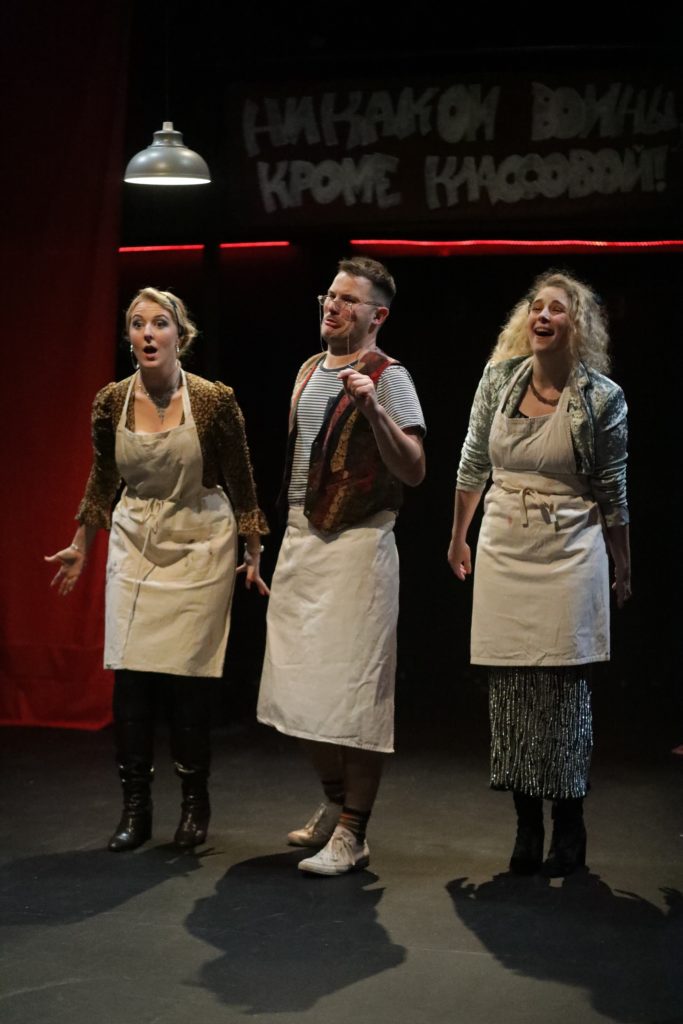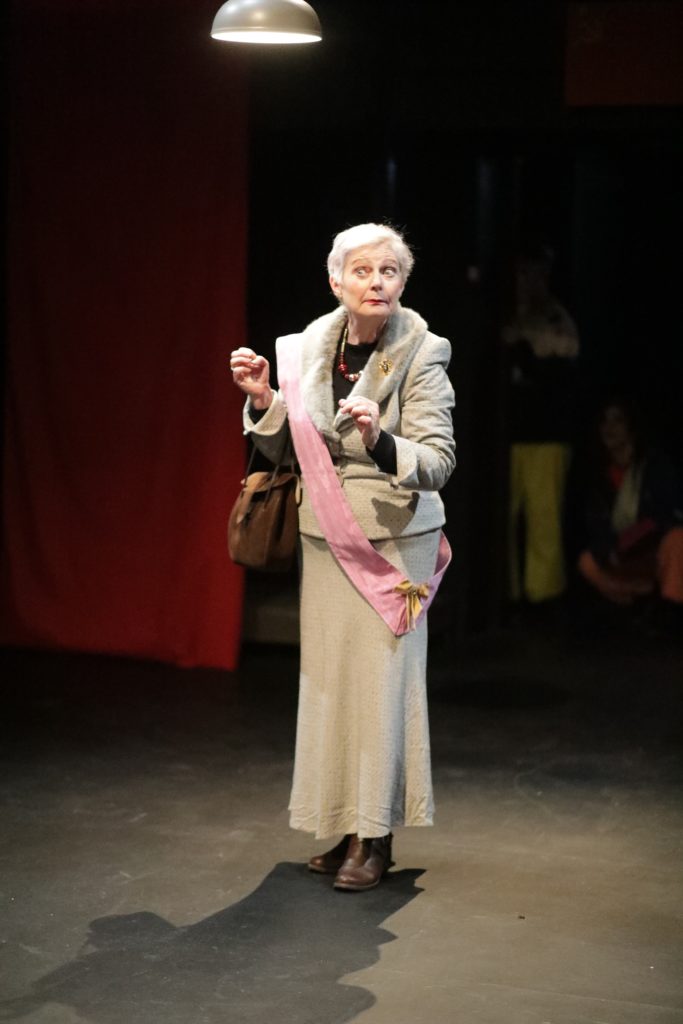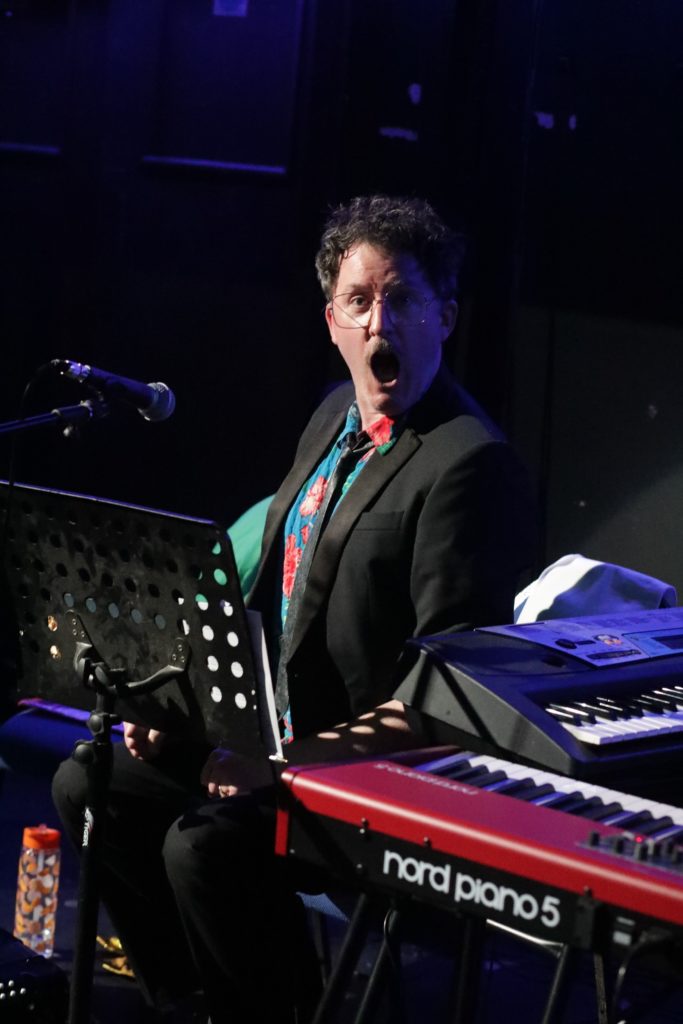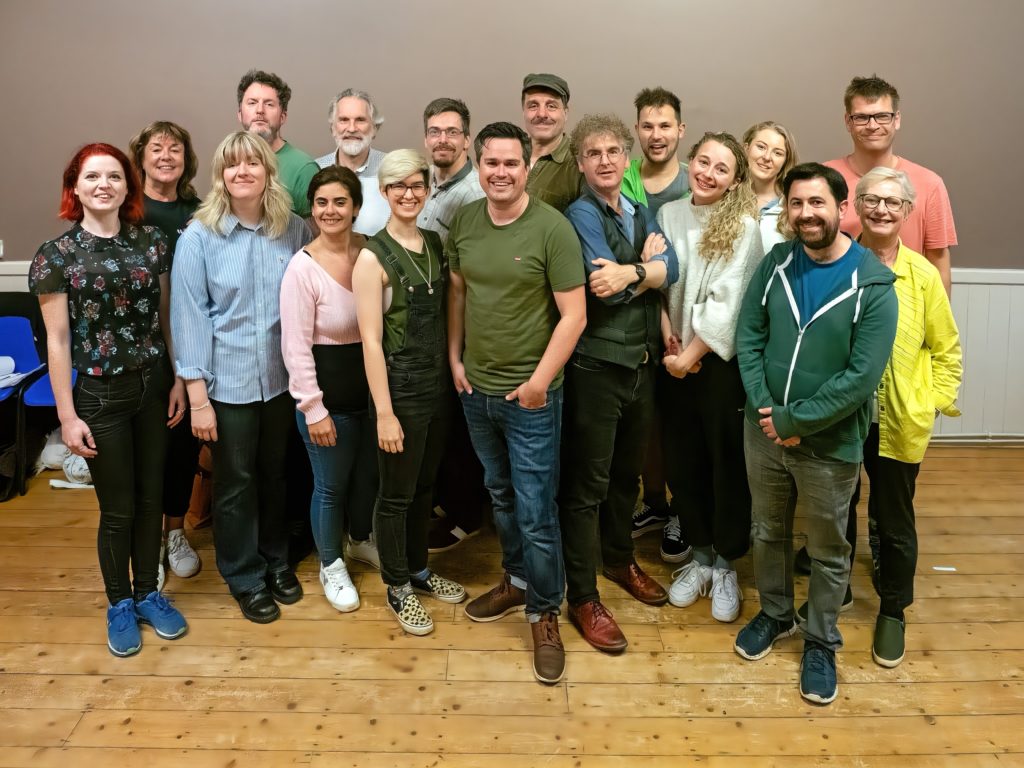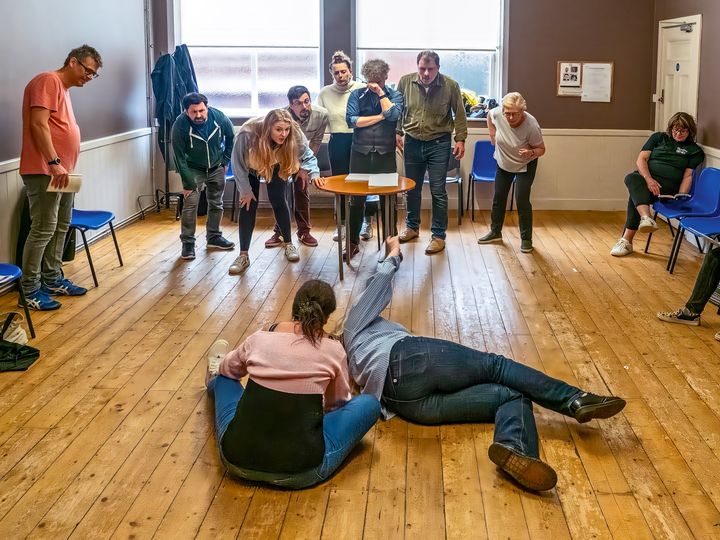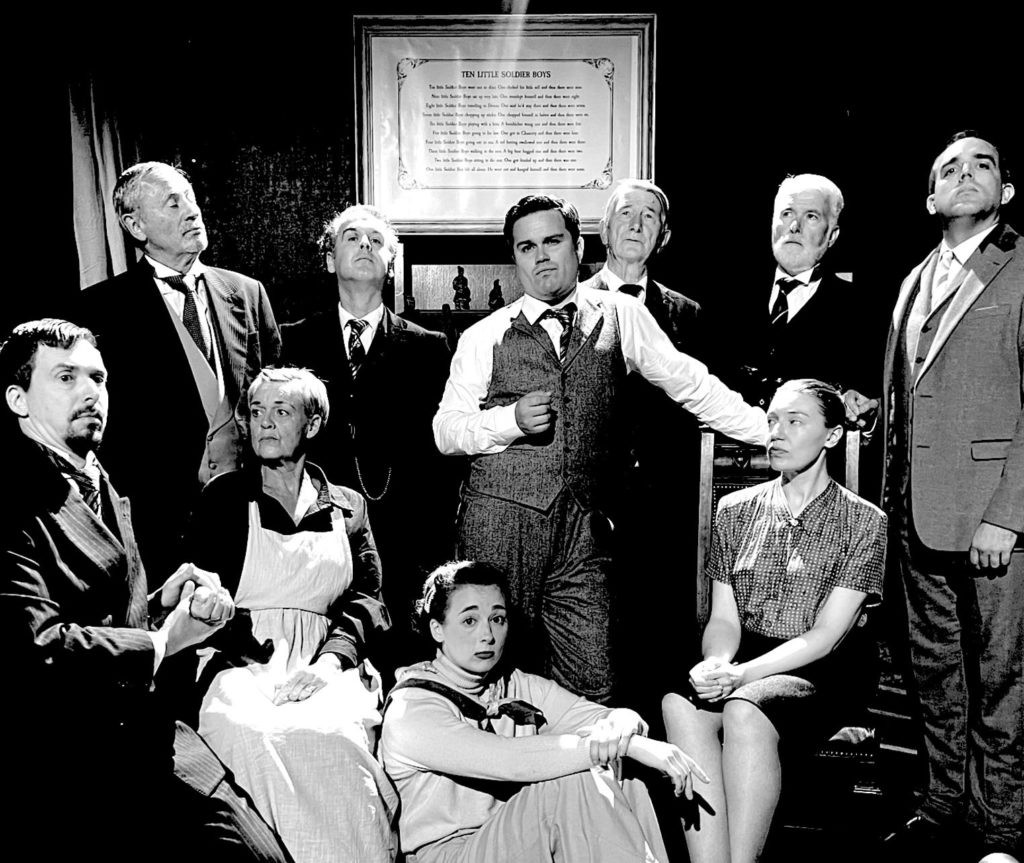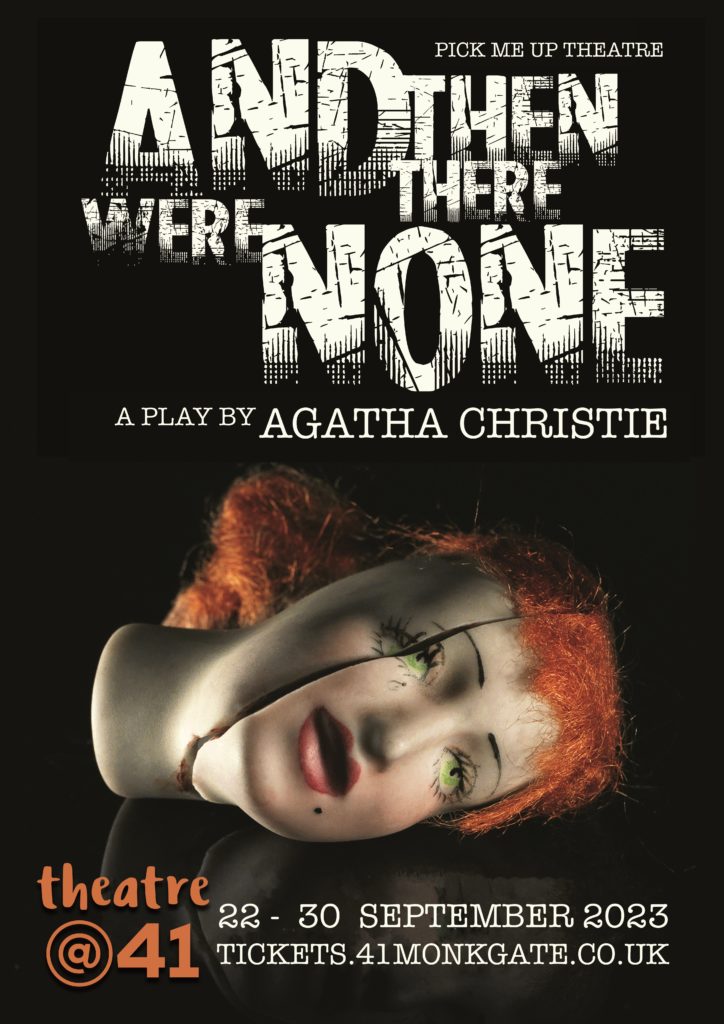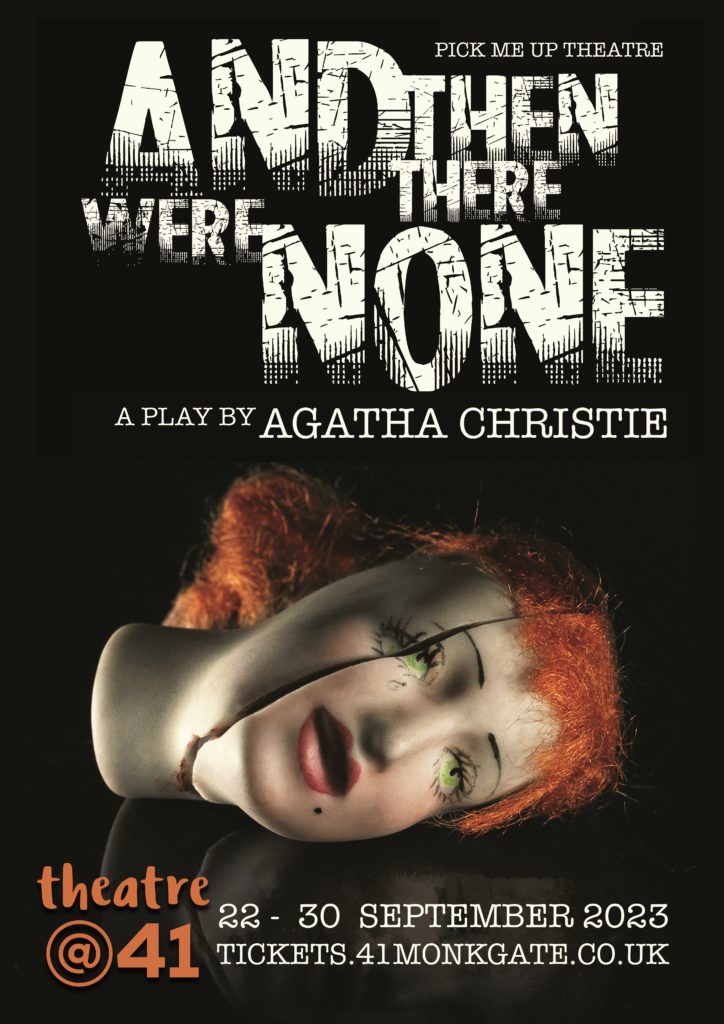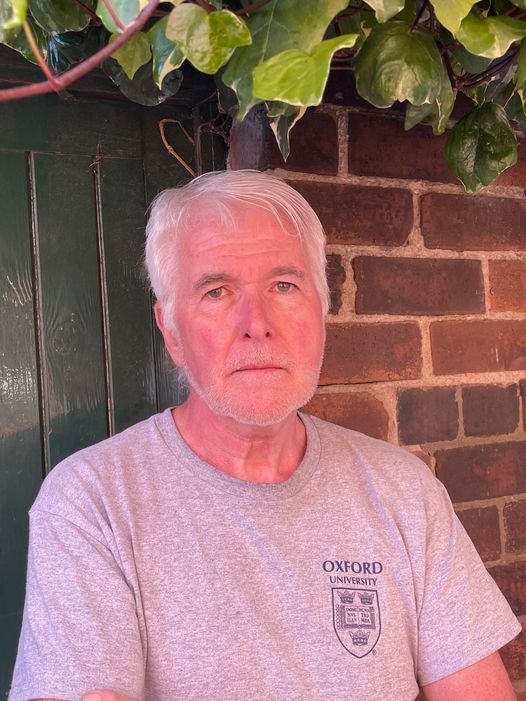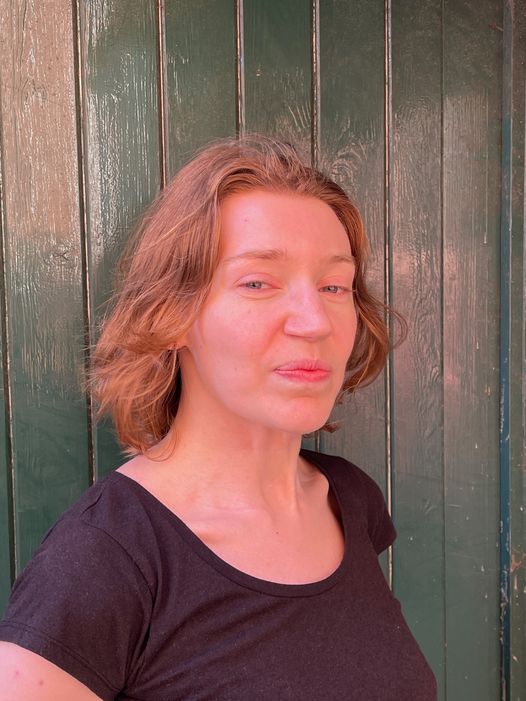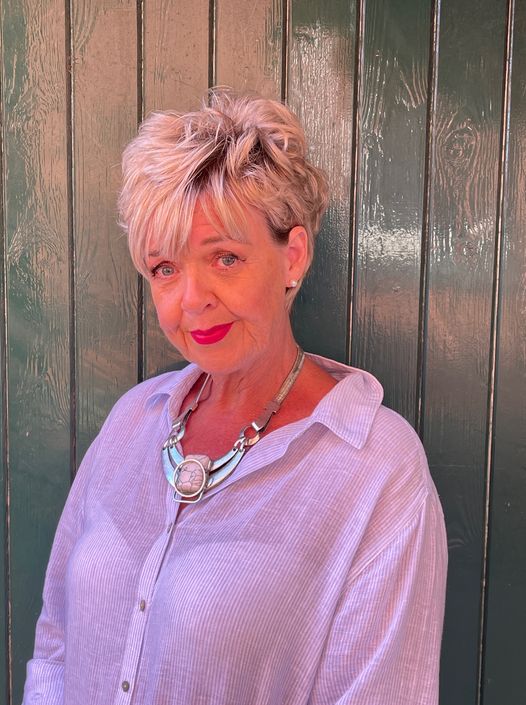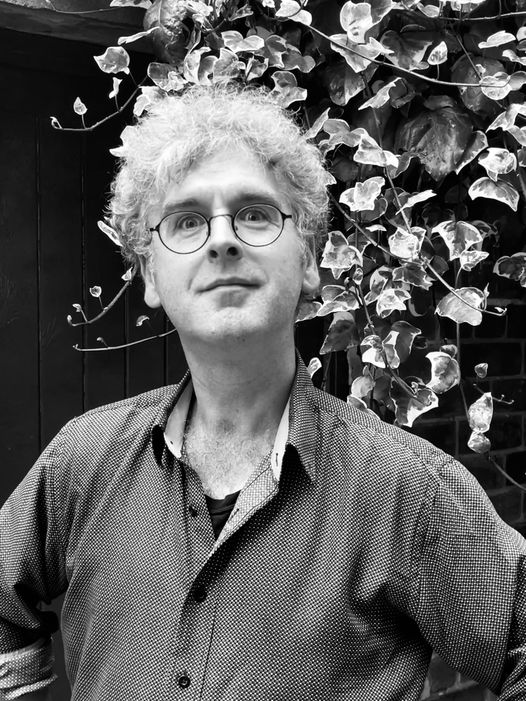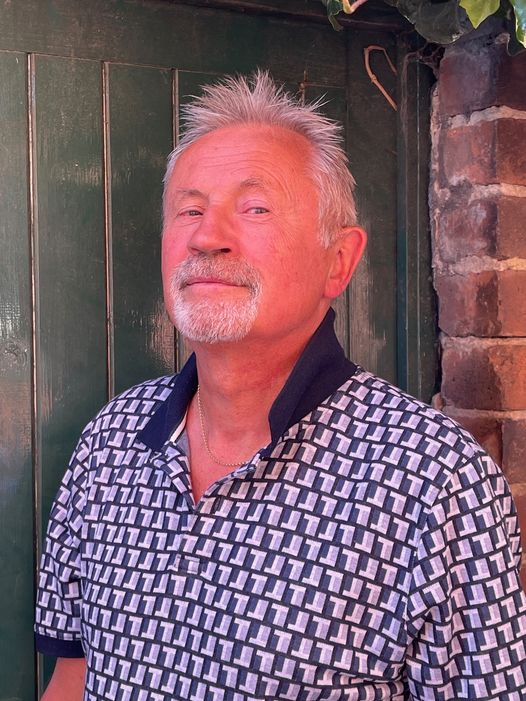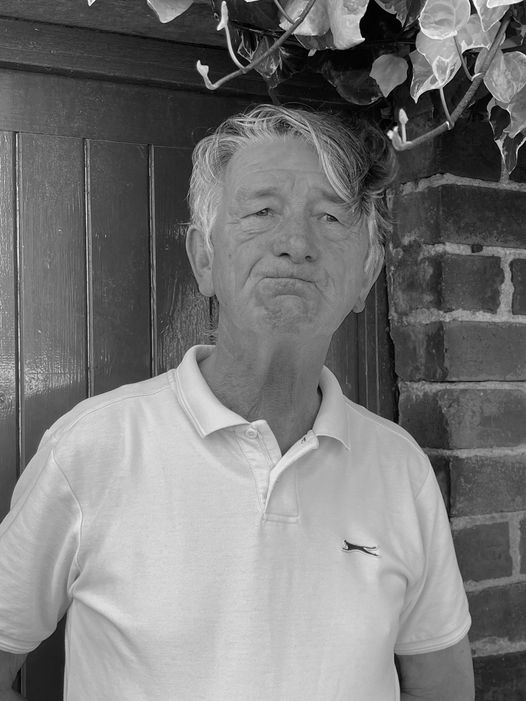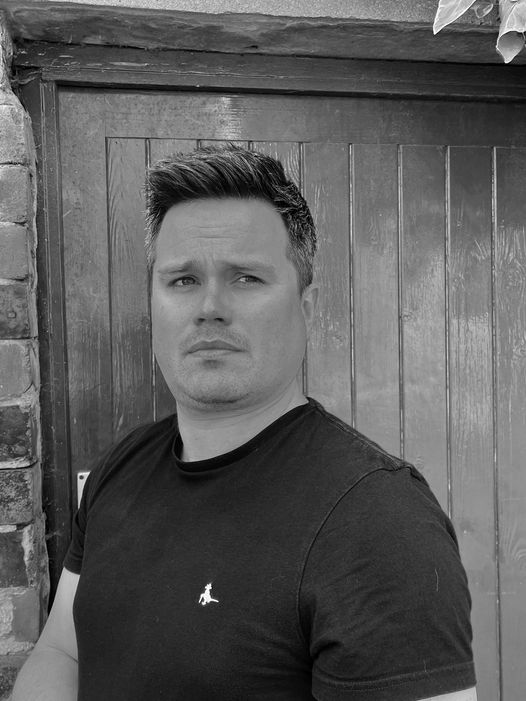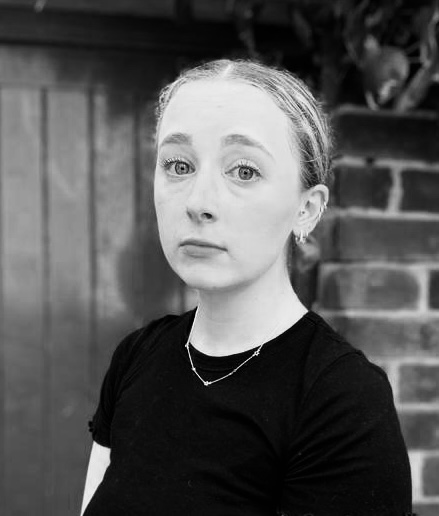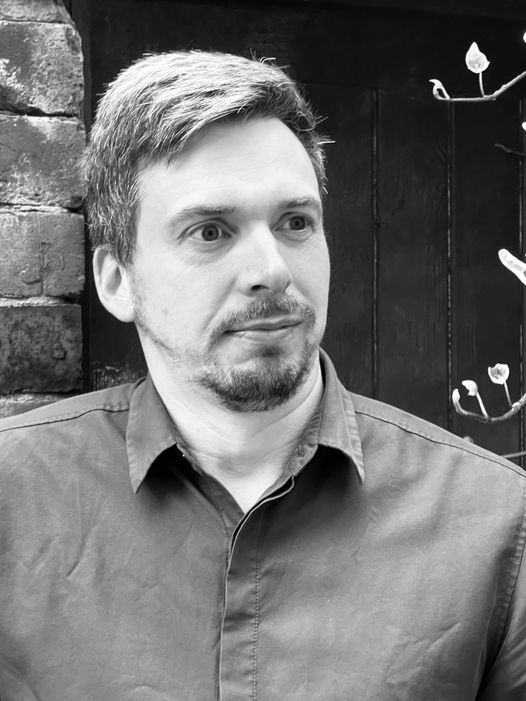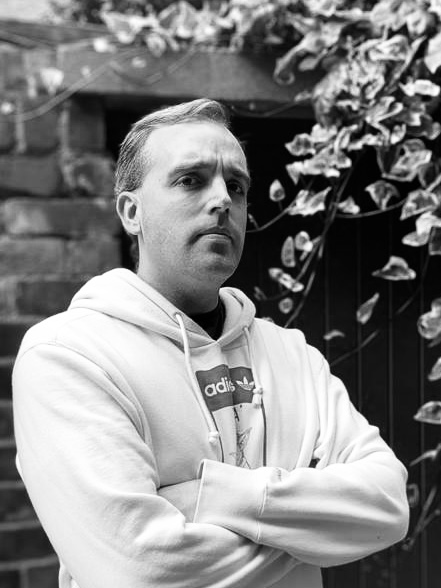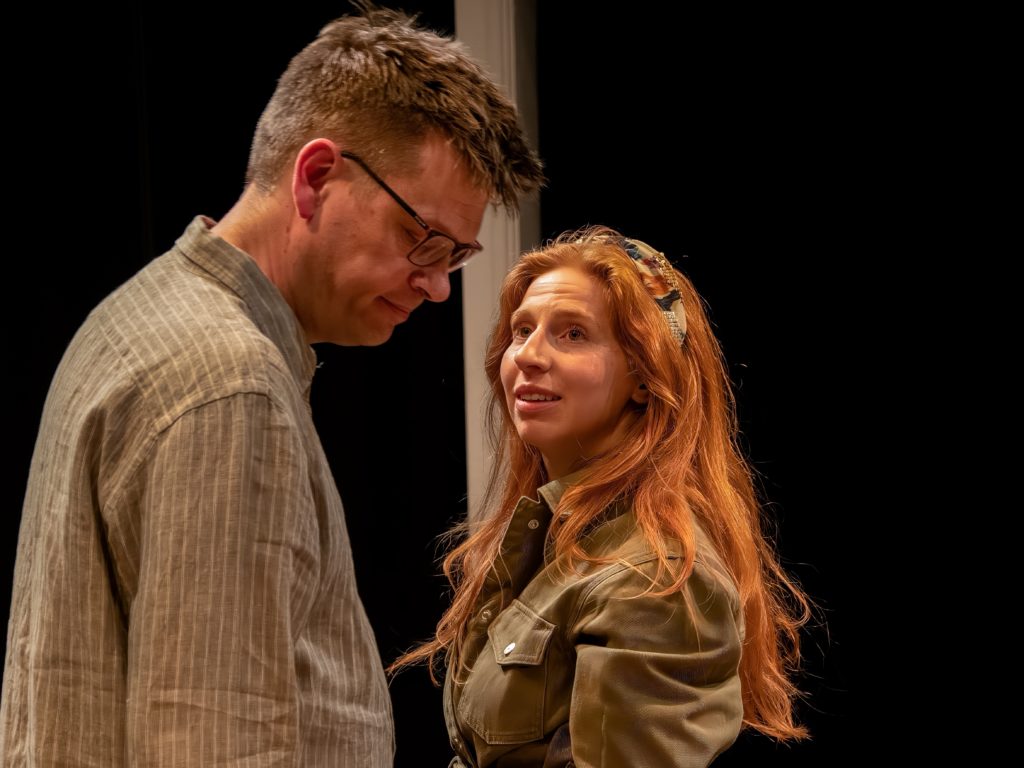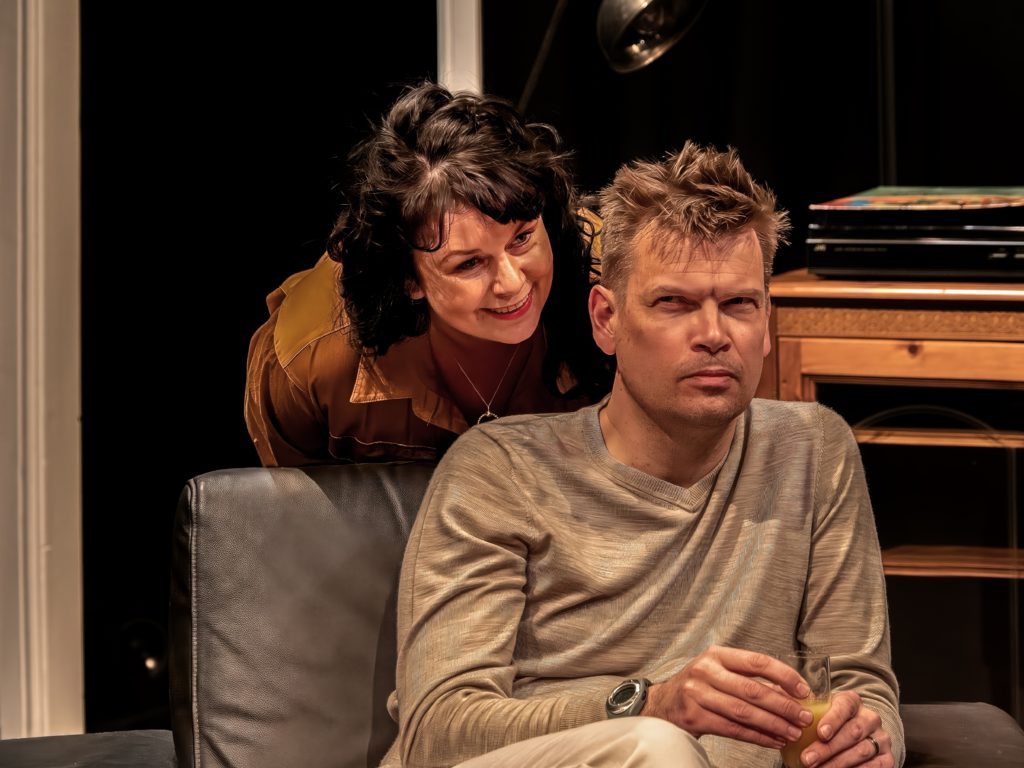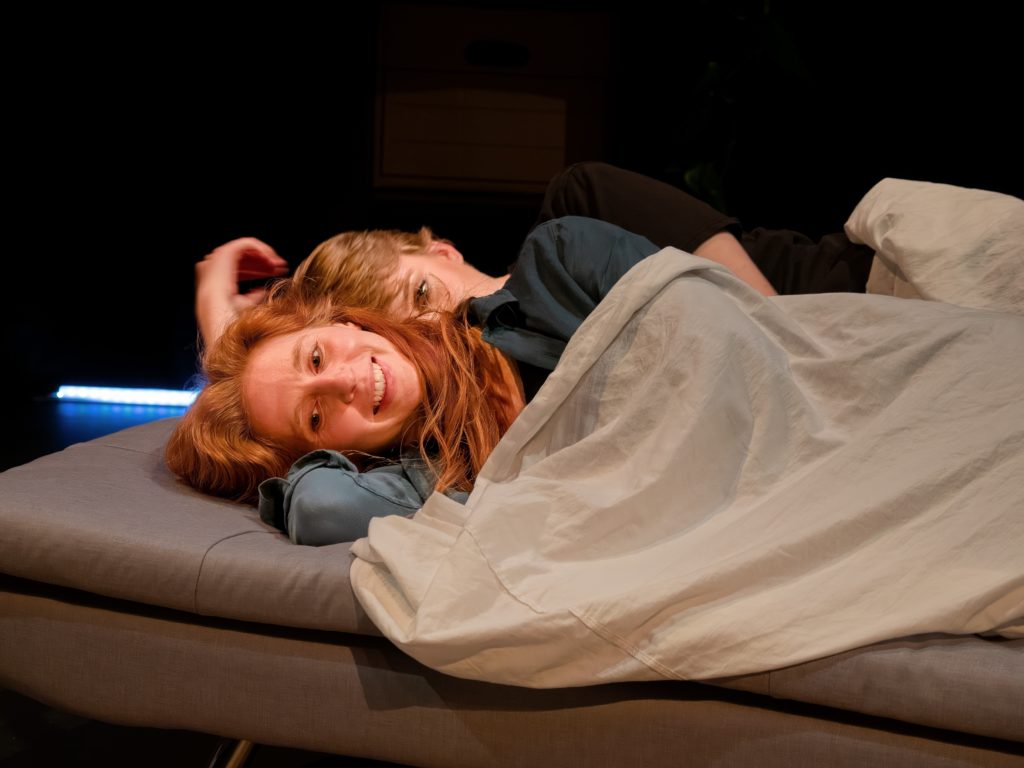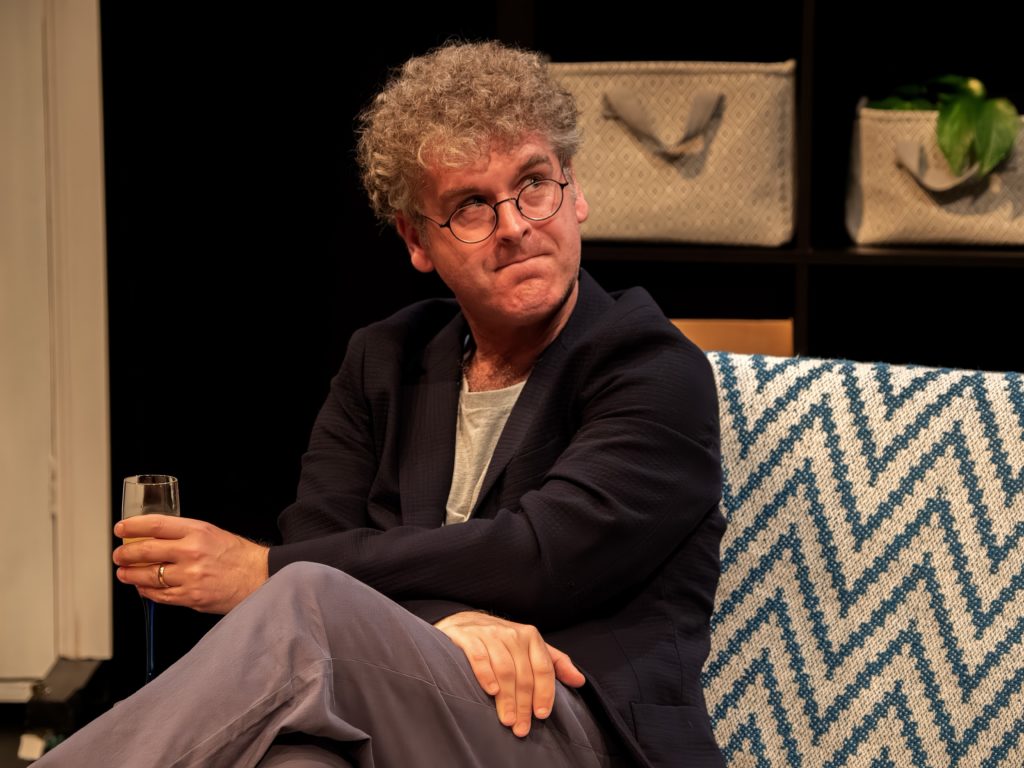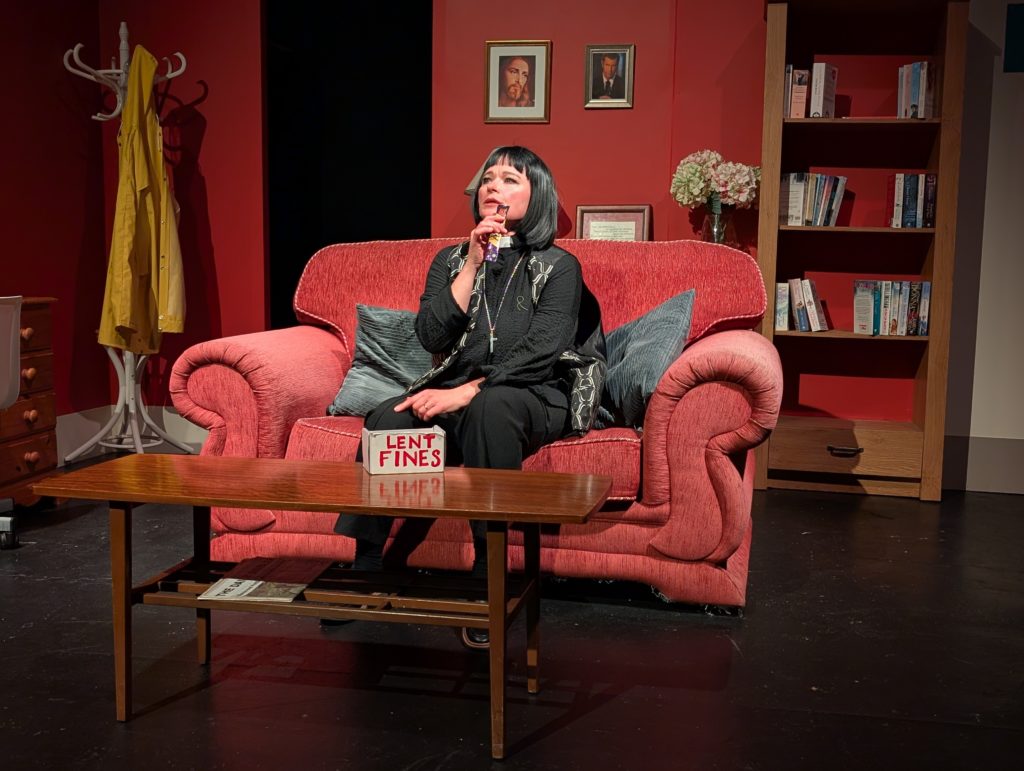
Always time for chocolate: Nicki Clay’s Geraldine Granger in MARMiTE Theatre’s The Vicar Of Dibley. Picture: Paul Miles
MARMiTE Theatre’s entire run of The Vicar Of Dibley sold out before opening night. What an achievement for this new York company – and how enviously any number of village churches must look at the full congregation.
New company, yes, but one steeped in names familiar to followers of the York theatre scene, from director Martyn Hunter to Nicki Clay, a third generation York performer with more than 50 shows in 26 years to her name.
Here she is on doubly Dibley duty, having played the Reverend Geraldine Granger in May for the Monday Players in Escrick.
Joining her in Hunter’s company are Florence Poskitt, Neil Foster, Mike Hickman, Adam Sowter, Jeanette Hunter and Helen “Bells” Spencer, all regulars on York’s boards, and Glynn Mills, whose absence of a cast profile in the programme made him a man of mystery to your reviewer.
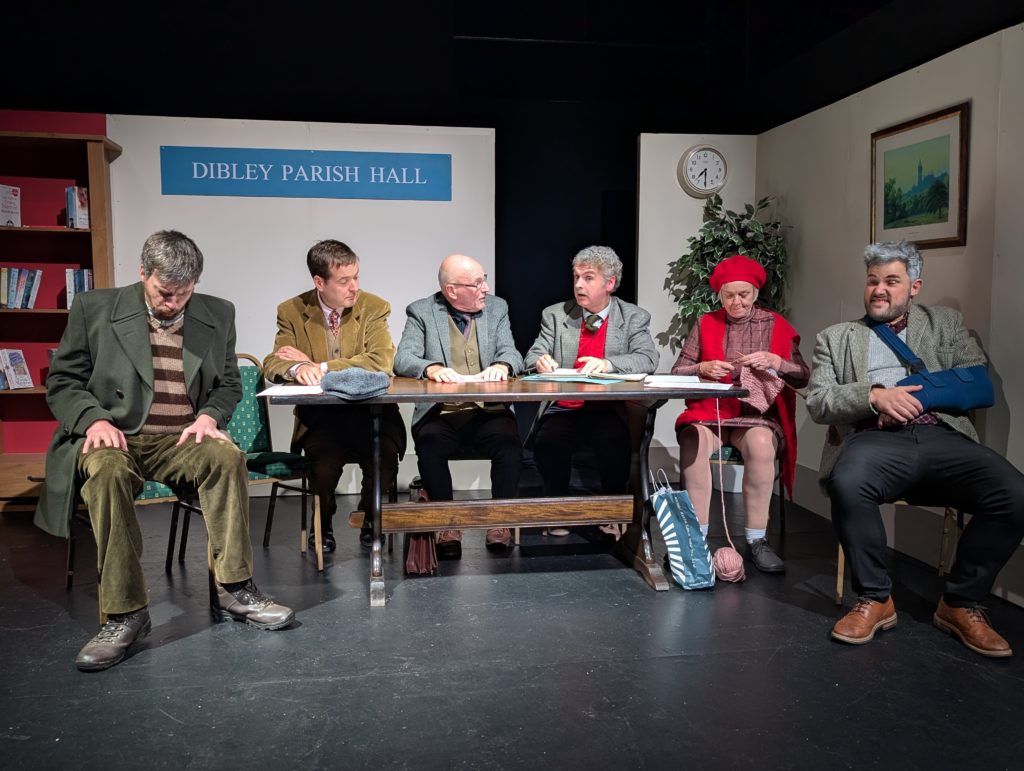
Who will fill that empty seat? Dibley Parish Council awaits the arrival of the new incumbent in The Vicar Of Dibley. Present are Mark Simmonds’s Owen Newitt, left, Neil Foster’s Hugo Horton, Glynn Mills’s David Horton, Mike Hickman’s Frank Pickle, Jeanette Hunter’s Letitia Cropley and Adam Sowter’s Jim Trott. Picture: Paul Miles
Research enquiries revealed he had been connected with theatre for 62 years, attending Central School of Speech & Drama, working in repertory theatre, the West End and on UK tours, and doing voiceovers and cabaret too. All that experience shows in a performance full of fire and ire, putdowns and intolerance as council chairman David Horton.
Rich Musk and Martyn Hunter’s set design accommodatesGeraldine’s cosy sitting room cum office with desk and typewriter alongside the tables and chairs of Dibley Parish Hall, permanently laid out for the next meeting.
Above is a screen, on which Ian Gower and Paul Carpenter’s cherry-picking of the best of Richard Curtis and Paul Carpenter’s first two television series opens with the familiar Dibley faces walking through the churchyard. Scene titles, Later, Later Still, Later That Evening, and such like, denote time of day and the change from one day to the next.
To either side of the screen on the mezzanine level is a neon-lit cross; on one occasion up there, Clay’s Geraldine tells one of her shaggy dog tales to Poskitt’s Alice Tinker, the ditzy church verger, but the lighting puts a distracting shadow slash across the vicar’s face from the barrier railing. Hopefully that can be eradicated.
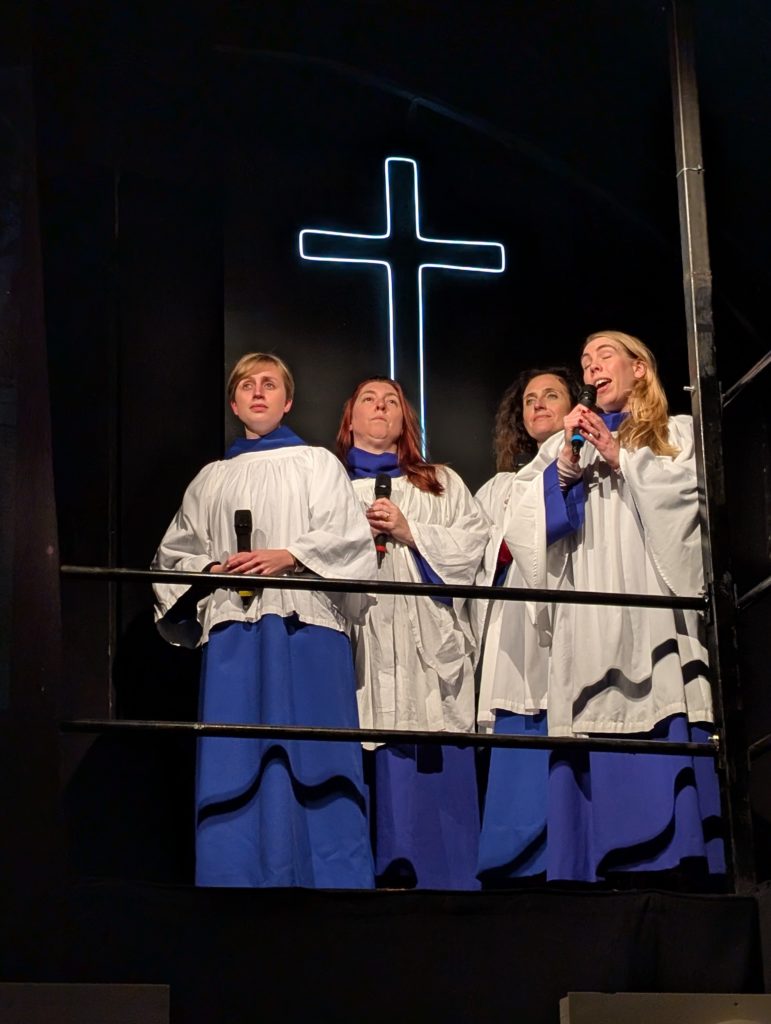
In perfect harmony: Rachel Higgs, Helen “Bells” Spencer, Henrietta Linnemann and Cat Foster on choral duty in MARMiTE Theatre’s The Vicar Of Dibley. Picture: Paul Miles
On more than one occasion, the York vocal harmony group The Hollywood Sisters (“Bells” Spencer, Cat Foster, Henrietta Linnemann and Rachel Higgs) transform themselves into The Holy Sisters to sing hymns in beatific Songs Of Praise manner. Wholly in harmony with the play’s multitude of formal meetings and informal chats, their inclusion is typical of Hunter’s good directorial judgements that see the sitcom flow of short scenes sustain momentum with a twinkle in the eye throughout.
The play opens with Mills’s grouchy parish council chairman David Horton hosting the meeting where the new vicar will make a first appearance. In attendance are his awfully nice son Hugo (Neil Foster); the stickler-for-accuracy minute-noting parish clerk Frank Pickle (Mike Hickman); knitting-on-her-knee Letitia Cropley (Jeanette Hunter) , creator of endless inedible cakes and sandwiches, and no-no-no-no-yes man Jim Trott (a gurning Adam Sowter, left arm in a sling, presumably not for extra comic effect?!).
Dashing in and out with bodily ablution problems that he loves to describe is blunt dairy farmer Owen Newitt (Mark Simmonds, York’s busiest actor of the moment as he follows his Macheath in York Opera’s The Beggar’s Opera with Dibley, only a month to go to Pick Me Up Theatre’s Anything Goes).
Enter the new vicar, very definitely not a man as irascible chairman Horton expects, but Clay’s Geraldine Granger, drawing attention to her ample bust (matched by her even more ample supplies of chocolate). Whereupon Clay performs in the French style, mirroring the speech rhythms, facial expressions and mannerisms of Dawn’s sitcom vicar but with her own panache.
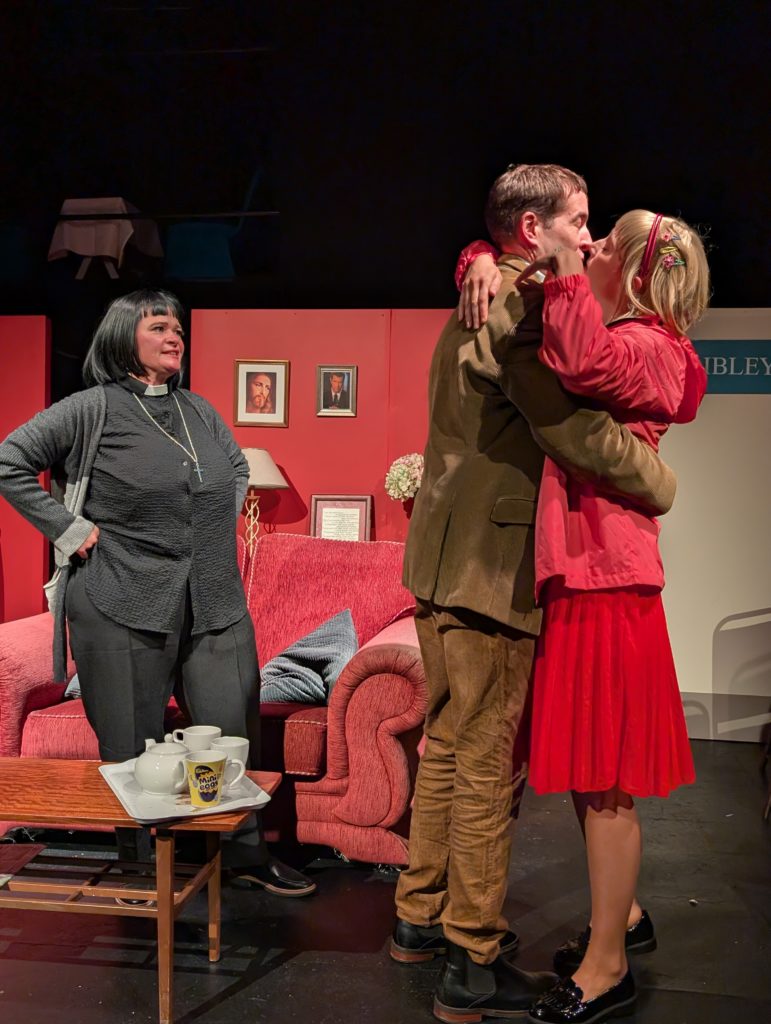
Nicki Clay’s Geraldine Granger looks on as Neil Foster’s Hugo Horton and Florence Poskitt’s Alice Tinker kiss at last in MARMiTE Theatre’s The Vicar Of Dibley. Picture: Paul Miles
Clay’s Geraldine is a delight throughout, at once reverent yet irreverent, and her scenes with Poskitt’s ever-slow-off-the-mark, exasperating Alice are a particular joy.
Poskitt, a supremely expressive physical comedian, wins hearts too in her love-struck, tongue-tied bonding with Foster’s equally awkward, inhibited Hugo. Their kissing clench that stretches from Act One finale into Act Two opener is one of the comic highpoints, not least from the nimble-footed input of Clay’s Geraldine, breaking down the fourth wall to play to the audience in providing a running commentary on what’s going on.
Hickman’s Pickle, Jeanette Hunter’s Letitia, Sowter’s Trott and especially Simmonds’s brusque Owen all have their moments too in MARMiTE Theatre’s debut that you will surely love, not hate. Don’t swear if you are too late for a ticket; Hunter and co have plans to do further Dibley village capers.
MARMiTE Theatre in The Vicar Of Dibley, Theatre@41, Monkgate, York, November 11 to 15, 7.30pm and 2.30pm Saturday matinee. Box office: tickets.41monkgate.co.uk. All profits will be donated to Comic Relief.

